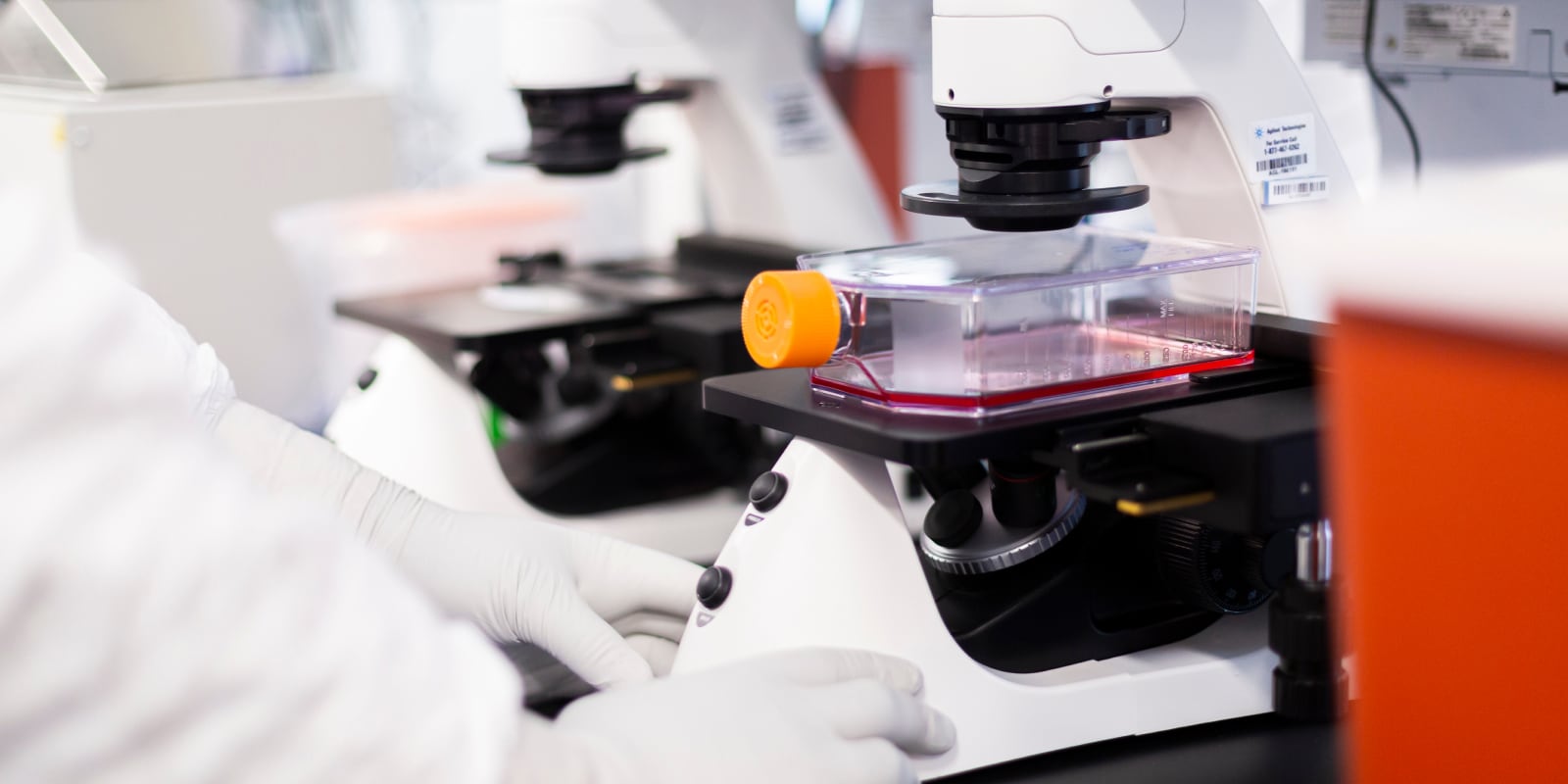Research
Using our platform, we are developing mRNA medicines for diverse uses and delivering them to patients across the globe. We are currently focusing on 4 medical areas – infectious diseases, immuno-oncology, rare diseases and autoimmune diseases.

What is a modality?
When we identify technologies that we believe could enable a new group of potential mRNA medicines with shared features, we call that group a modality. While the programmes within a modality may target diverse diseases, they share similar mRNA characteristics, delivery technologies and manufacturing processes.
Moderna's modalities
We have created seven modalities to date, but we are relentlessly working to grow this number as we discover mRNA medicines.
Prophylactic vaccines.
Systemic secreted and cell surface therapeutics.
Cancer vaccines.
Intra-tumoural immuno-oncology.
Localized regenerative therapeutics.
Systemic intracellular therapeutics.
Inhaled pulmonary therapeutics.
Medical areas of focus
Infectious diseases
Immuno-oncology
We are harnessing the body’s immune system to identify and kill cancer cells in the same way the immune system identifies and targets infections.
Rare diseases
Moderna recognises the impact of rare diseases on patients and their families, particularly when the disease lacks any effective treatment options.²
Autoimmune diseases
We are developing several potential mRNA therapeutics that we believe have the potential to help the millions of patients battling autoimmune diseases.
¹National Cancer Institute. CAR T Cells: Engineering Patients’ Immune Cells to Treat Their Cancers. Available at: https://www.cancer.gov/about-cancer/treatment/research/car-t-cells. Last accessed November 2025.
²UK Government. Press release. Millions of people with rare diseases to benefit from faster diagnosis and better access to treatment. Available at: https://www.gov.uk/government/news/millions-of-people-with-rare-diseases-to-benefit-from-faster-diagnosis-and-better-access-to-treatment. Last accessed November 2025.
³National Human Genome Research. Rare Genetic Diseases. Available at: https://www.genome.gov/dna-day/15-ways/rare-genetic-diseases. Last accessed November 2025.
⁴Severino P, et al. Ischemic Heart Disease and Heart Failure: Role of Coronary Ion Channels. Int J Mol Sci 2020;21(9):3167. Available at: https://www.researchgate.net/publication/341142163_Ischemic_Heart_Disease_and_Heart_Failure_Role_of_Coronary_Ion_Channels. Last accessed November 2025.
⁵British Heart Foundation. UK factsheet. April 2023. Available at: https://www.bhf.org.uk/-/media/files/for-professionals/research/heart-statistics/bhf-cvd-statistics-uk-factsheet.pdf?rev=c64051a5b118450490f48b1e5b72f1ff&hash=D4DAD77307F06B5883373456597729A6. Last accessed November 2025.